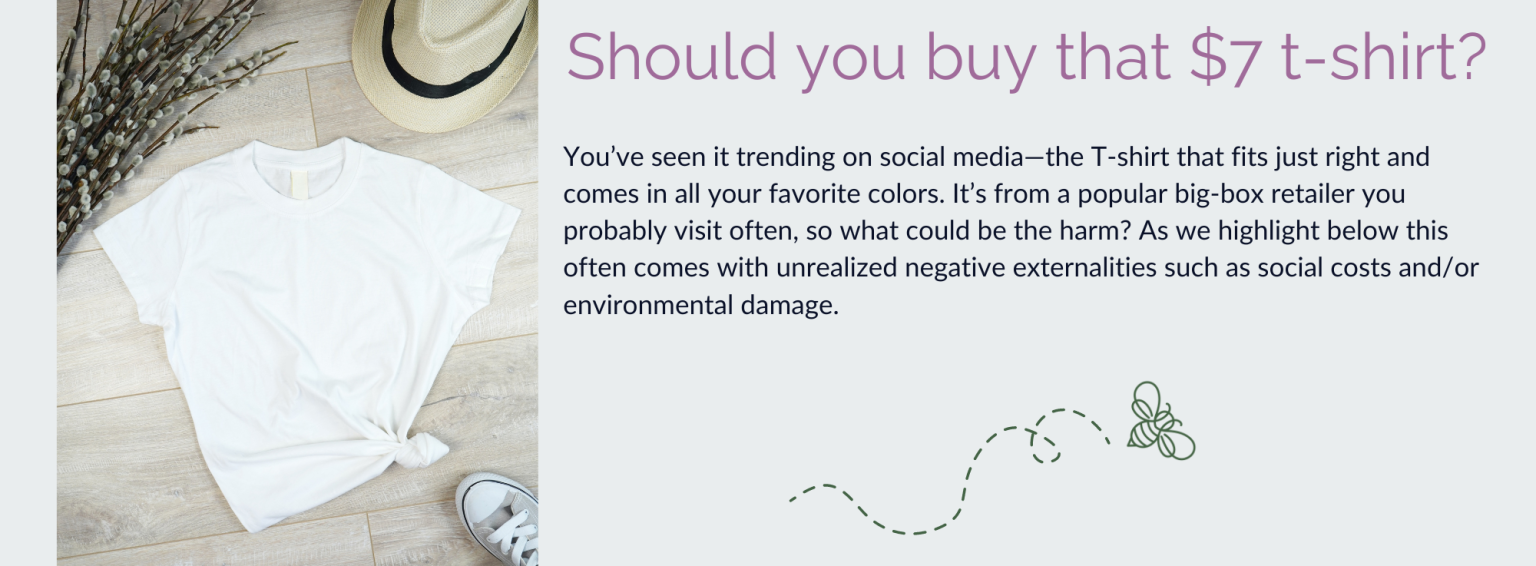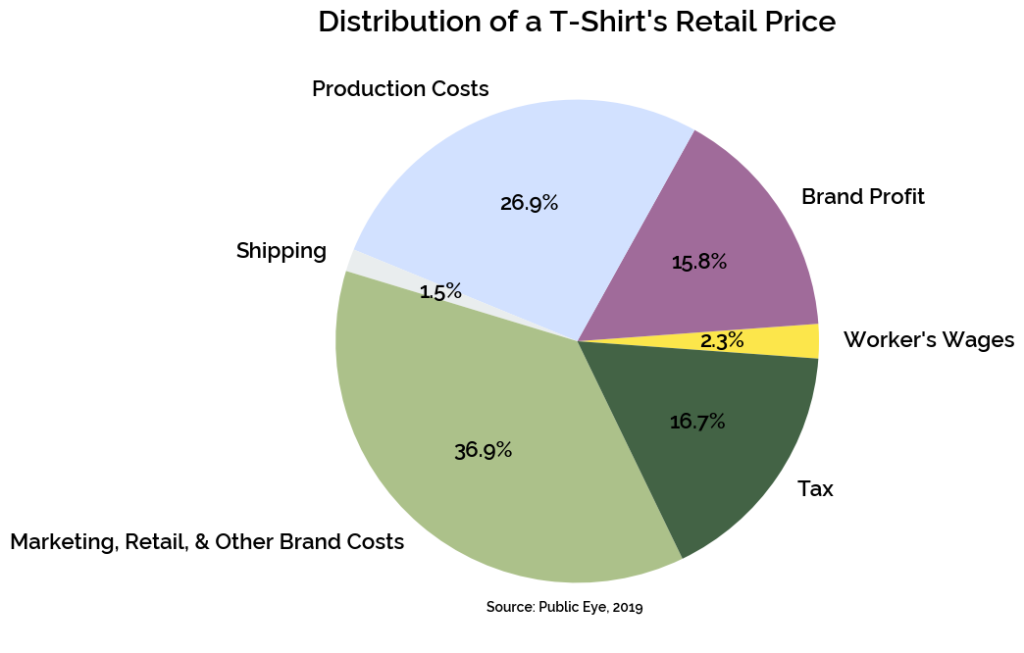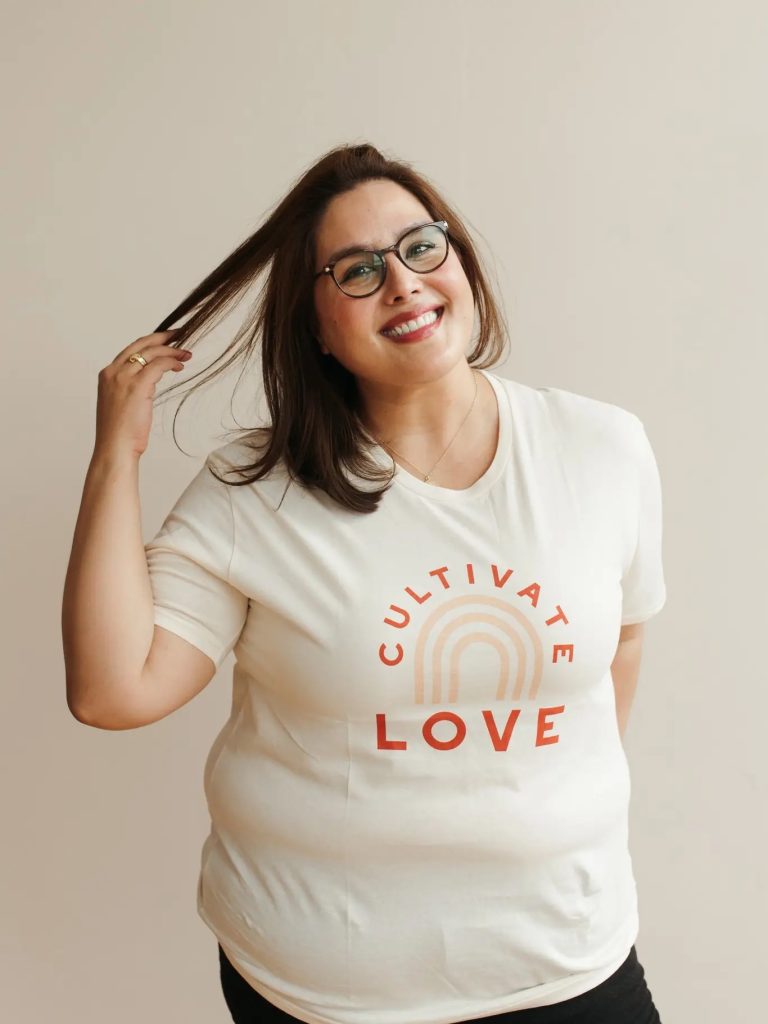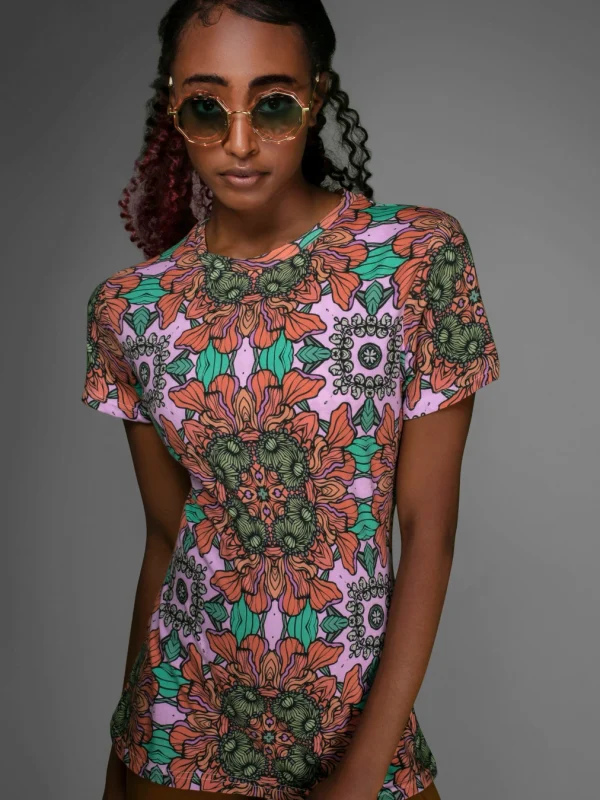
The Real Cost Behind a Bargain
Three decades ago, you could buy a T-shirt for about the price of a gallon of gas. Today, while a tank of gas costs three to four times more, that T-shirt remains roughly the same price. This is possible largely due to the globalization of clothing manufacturing and the migration of production to countries with lower labor costs. Although the countries responsible for the largest portion of clothing manufacturing generally have living costs, often wages are artificially suppressed resulting from labor exploitation and refusal to pay a living wage.

This pie chart highlights the small percentage—only 2.3%—of a T-shirt’s retail price that typically goes to the workers who construct the garment. For the $7 T-shirt, that’s just 16 cents. This stark discrepancy underscores the need for consumers to consider the real cost of low-priced fashion. By understanding who benefits from our purchases, we can make more informed choices that advocate for fair compensation and sustainable practices in the fashion industry.
The lower prices of fast fashion rely on cheaper materials, most often synthetic fibers or blends, which not only degrade in quality quickly but also pose severe environmental hazards. Synthetic fibers can take up to 200 years to decompose, and release microfibers that pollute water systems every time they are washed. While recent product development moves towards circularity of these products by manufacturing more products with recycled polyester or PET, these washing and eventual end of life environmental harms remain.
Hidden Human CostsRemember the tragic collapse of the Rana Plaza building in Bangladesh a decade ago, which highlighted the dire conditions under which our clothes are made? While safety measures may have improved slightly since then, the welfare of the over 75 million vulnerable workers in the global garment industry continues to decline, overshadowed by relentless production demands. [Recent strikes and link to wages article]
Sustainable AlternativesInstead of feeding the fast fashion cycle, consider investing in higher-quality items made from regenerative fibers or designed with circularity in mind. If you must buy synthetic, minimize washing and use a filter bag to catch microfibers. Embrace novelty through sustainable means, such as learning fabric alteration techniques like tie-dye, shibori, or eco printing. Clothing swaps are another great way to refresh your wardrobe without contributing to the fast fashion problem.
The Role of Young ConsumersAre you a millennial or Gen Zer? These younger generations are uniquely positioned to champion change. These consumers are increasingly skeptical of greenwashing and unethical production practices. Despite financial constraints, there is a growing willingness among young people to pay more for sustainability and ethical production, suggesting a shift towards more conscious consumerism.
Taking ActionWe all have a role in shaping the future of fashion. By supporting companies that ensure fair wages and use sustainable practices, and by advocating for transparency and responsibility in fashion production, we can help protect both the environment and the workers. Sharing information, raising awareness, and choosing where to spend our money can collectively foster a more ethical and sustainable fashion industry. Next time you see a $7 t-shirt, think twice—your choices make a difference.
Bee the change with Zubeezu!
At Zubeezu, we take pride in offering you a wide range of sustainable fashion choices that not only ensure fair wages but are also stylish. Our collection of sustainable T-shirts is made from regenerative fibers, like organic cotton and bamboo, which are grown using practices that reduce environmental harm and promote soil health. We work with trusted suppliers who ensure that all our T-shirts are ethically manufactured with fair wages and safe working conditions for all workers involved in the production process. By buying from us, you support a more ethical and sustainable fashion industry.


